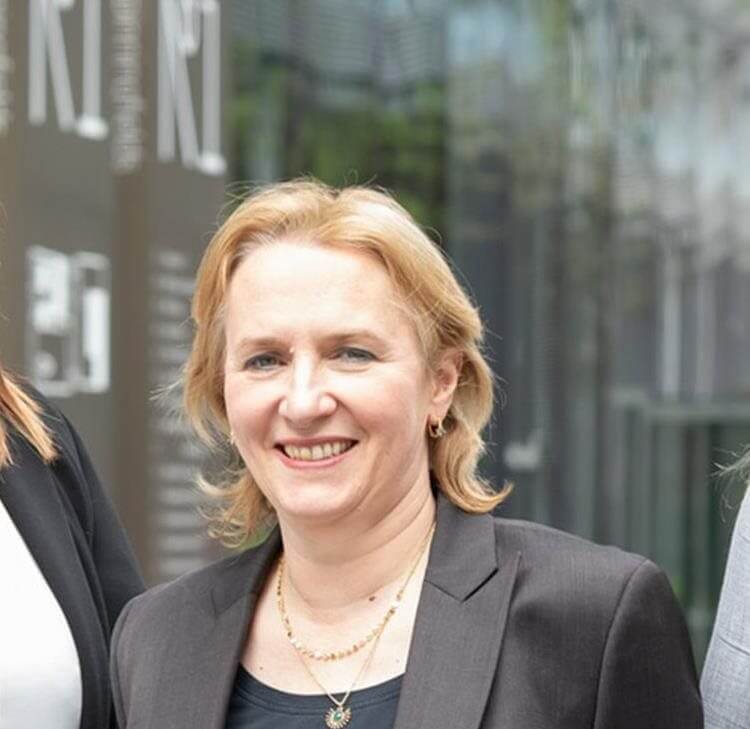Chancellor Rachel Reeves today (26 November) set out her vision for long-term economic growth while stabilising public finances, as part of the 2025 Autumn Budget.
Headline announcements included a cap on tax-efficient pension contributions made via salary sacrifice, a new ‘high-value property’ council-tax surcharge for homes worth over £2m, and a proposed mileage-based tax on electric and plug-in hybrid vehicles. These measures form part of a wider package aimed at shifting more of the tax burden onto wealth, property and asset-income, while generating revenue to support investment and public services.
Our legal experts share their insight and analysis of the key announcements and outline practical implications for our clients across the public and private sectors.
Landmark shift in funding nuclear power
Zoe Stollard, Partner in Energy and Infrastructure, said: “Beyond the Budget, the real story is regulatory revolution. The Nuclear Regulatory Taskforce's final report proposes a once-in-a-generation overhaul, including potential consolidation of defence and civil nuclear regulatory functions and giving the Office of Nuclear Regulation the ability to consider strategic factors such as energy and national security imperatives. The government has committed to implementing all recommendations within two years. This is about cutting red tape without cutting corners on safety.
“The money matters too. Adding nuclear to the Green Financing Framework, with green gilts and Green Savings Bonds now funding nuclear power, is a landmark shift that's earned an improved 'dark green' rating from S&P, their highest rating. Nuclear is officially green. Crucially, proceeds from bonds issued before 27 November 2025 won't fund nuclear, a clear line for investors who've already bought in.
“There are also up to 3,000 jobs expected at peak construction in Anglesey, which was announced before the Budget. Community engagement isn't just good practice, it can be ‘litigation insurance’.
“Early, transparent dialogue with local residents about safety standards, economic benefits, and job creation reduces the risk of judicial review derailing timelines. The regulatory reforms and financial frameworks announced today provide the legal architecture; community consent will determine whether it stands.”
Contradictory signals for EV manufacturers
Joe Davis, Head of Automotive, said: "The market should read this as continued government commitment to the EV transition. However, the introduction of a mileage tax on electric vehicles from 2028 sends a contradictory signal at a critical juncture for the sector.
“While charging infrastructure investment is welcome, introducing a mileage tax on electric vehicles from 2028, at £0.03 per mile for battery electric cars and £0.015 for plug-in hybrids, risks taxing the drivers of future growth when it could be accelerating adoption.
“If the UK is serious about meeting the 2030 deadline banning sales of new petrol and diesel cars, the sector would benefit from a framework that gives businesses and consumers the confidence to invest in electric vehicles now.
"Many businesses and consumers have invested heavily in the green transition, and this policy will disincentivise further investment from both groups. The pay-per-mile concept is particularly toxic for market confidence. Coming after the 2035 petrol ban row back, it creates exactly the kind of uncertainty that damages long-term planning.
"The timing is especially problematic. Just as significant investment is flowing into EV infrastructure and manufacturing, adding this tax burden seems like a backwards step. If the government is serious about the 2030 deadline, this needs to be mitigated by accelerating supply-side improvements, bringing down manufacturing costs and improving the energy grid to reduce charging costs.
"Our automotive clients are telling us they need policies that expand the market and give businesses and consumers confidence to invest in electric vehicles now, not measures that create new barriers to adoption.
"The focus on charging infrastructure is welcome, particularly the consultation on solutions for those without driveways, as charging accessibility remains a genuine barrier to adoption. However, this positive step risks being overshadowed by a tax policy that could kill off the very conversion to EVs that the infrastructure is meant to support."
Sugar tax extension to milk-based drinks will affect major brands
Sam Sharp, Partner in Food and Drink, said: "Extending the soft drinks industry levy to milk-based drinks and milk substitutes from 2028 is the biggest story for food and drink manufacturers. Milkshakes, flavoured milk and dairy-free alternatives are now in scope - that's a reformulation scramble across the beverage sector affecting major brands and café chains.
"The ‘latte loophole’ - open cup beverages, such as lattes bought in coffee shops - remain unaffected, creating a regulatory divide that could distort competition between pre-packaged and made-to-order drinks. This change is one our team predicted and we’re advising businesses to be live to product compliance, labelling and renegotiating supply chain contracts.
"But sugar taxes are only part of the picture. The much-welcomed agri-food deal with the EU will save food businesses time and up to £200 per shipment when trading fresh food, cutting red tape on sanitary and phytosanitary checks. For meat exporters of produce such as Scottish Angus beef and Welsh lamb, this is transformative.
"Sanitary and phytosanitary equivalence terms will determine how much regulatory divergence the UK can tolerate without triggering renegotiation."
Unlocking investment for scale-up companies
Richard Cox, Head of Corporate, said: “Today’s announcement is an important signal that the government wants the UK to be the best place in the world for scale-ups to stay, not just start.
“Widening eligibility for VCT and EIS investment could be transformative for high-growth businesses that have outgrown early-stage funding but still need patient, risk-tolerant capital to scale. If re-engineering these schemes genuinely broadens access and removes some of the structural barriers that hold back growth-stage companies, it will help unlock investment and support the kind of long-term scaling Britain has struggled to deliver. The detail will matter, but the direction of travel is welcome.
"This position aligns with our research which found that 60% of businesses expected an increase in the volume of inbound M&A deals within their sectors this year, 73% of respondents expect increased private equity activity, with technology and infrastructure emerging as the most targeted sectors.”
Beth Dowson, Head of Tax & Share Incentives Scheme, said: “The decision to review and widen eligibility for VCT and EIS signals a shift in how the government views scale-up investment. Both schemes are powerful levers, but their current criteria can be too narrow to meet the needs of modern, fast-growing businesses.
"Today’s reforms – including increased investment limits and a reduction in VCT income tax relief – mark a material change to how these incentives operate. The challenge is striking the right balance: widening eligibility expands opportunities for scale-ups, but reduced relief may temper investor demand in the short term.”
On Enterprise Management Incentive (EMI) changes, Beth noted: "The expansion of the EMI regime is a significant step towards making equity participation more accessible for scale-ups. Increasing the asset and employee thresholds, doubling the option pool to £6m and extending the holding period gives fast-growing companies far more flexibility in how they attract and retain talent. For many of our growth-stage clients, this could materially improve how they compete for specialist skills in a tight labour market."
Neighbourhood health centres and public-private partnerships
The government has committed to building 250 neighbourhood health centres, which will be financed by public-private partnerships.
Carly Caton, Partner in Commercial Health, said: “Leveraging private finance to build 250 neighbourhood health centres – earmarked as a central plank in the government’s 10 Year Health Plan to shift healthcare from hospitals to communities – is a wise move at a time of fiscal restraint.
“Public-private partnerships (PPPs) can help to speed up the delivery of new social infrastructure projects while bringing down costs to the taxpayer and sharing risk between commercial parties and contracting authorities.
“PPP programmes work well when there is a consistent pipeline of projects that allows the private sector partners to deliver economies of scale with some certainty. Bringing forward a significant number of community health centres will help to attract those private sector partners to the table.
“However, there are important lessons to be learned from previous PPP programmes, including PFI and PF2. These had perceived drawbacks such as high transactional fees, long procurements, lack of flexibility and poor-value risk transfer, which will be important to address for the NHS to benefit.”
PPP remit still too narrow
In the Budget document (4.2 Investing in the future), the government says it will consider how private finance can support the delivery of wider infrastructure ambitions, including new towns, by building an evidence base on PPP programmes used in neighbourhood health centres.
Craig Elder, Partner in Public Procurement, said: “With tweaks across the tax system expected to drag on already sluggish growth, this was a Budget to mitigate these decisions with a bold infrastructure strategy on which the road to recovery will be built.
“But while it was reassuring to hear the Chancellor to commit to delivering previously announced transport schemes such as the Lower Thames Crossing, Midlands Rail Hub, Northern Powerhouse Rail, this felt like a missed opportunity to press ahead with its wider infrastructure mission.
“Public-private partnerships (PPPs) are correctly identified as a mechanism for building some of the 250 neighbourhood health centres and renewable energy schemes, while it leaves the door open for crowding in private finance to deliver new towns.
“This still feels like too narrow a remit when our existing schools, hospitals and prisons estate is in need of a major refresh.
“In a challenging fiscal environment and escalating cost of day-to-day public services, PPPs can play a crucial role in bringing down upfront costs for the taxpayer and sharing risk. If lessons on issues like transparency, flexibility and risk transfer can be learned on the perceived drawbacks of previous programmes such as PFI and PF2, partnerships between the state and investors remain a valuable tool in the Treasury’s armoury.”
Browne Jacobson is collaborating with the CBI to help shape the future of public-private partnerships in financing infrastructure renewal.
NHS needs to attract inward investment
The Chancellor promised a saving of £4.9bn from a variety of efficiencies will be spent on more nurses and GP appointments, along with £300m of investment in tech to improve patient services.
Gerard Hanratty, Head of Health and Life Sciences, said: “In every Budget, the Chancellor faces tough decisions between plugging funding shortfalls and implementing ‘efficiency’ cuts, but we must find a way of helping the NHS with its own self-care.
“Between these binary choices is an opportunity missed to leverage the global reputation, infrastructure and expertise of the NHS to attract inward investment that can help secure its long-term sustainability and integrate innovation – while remaining true to its founding principles.
“Research and development partnerships with global MedTech and digital health businesses are a central plank in the government’s ambition to shift from curative to preventative healthcare. However, overseas companies currently face too many legal, regulatory and procurement hurdles in accessing the NHS.
“Priorities for government therefore include developing a unified NHS ‘front door’ for international suppliers, leveraging post-Brexit regulatory freedoms to streamline approval pathways and standardising procurement processes between NHS organisations to scale up healthcare interventions beyond pilot programmes.”
Browne Jacobson has published a white paper, Advancing inward investment into the UK health sector, exploring how to make UK healthcare more attractive to overseas investors.
International student levy adds to financial burden on universities
Nathalie Jacoby-Danesh, Partner in Higher Education, said: “Universities may feel like they have been a punching bag for some time now, given they have been squeezed by government time and again in recent years.
“The international student levy – worth £925 per student – adds to the burden on a higher education sector that’s already facing wide-ranging financial challenges.
“The effects of this policy are already being seen and felt in the sector, with concerns about resulting course closure announcements. The Office for Students last week said 45% of English universities are on course to report a financial deficit in 2025-26.
“While tuition fee adjustments in line with inflation are a welcome intervention, it’s clear that consolidation will be the overriding theme for higher education in the short and medium terms. We expect to see further partnerships between universities – ranging from informal collaborations and joint ventures to full mergers – in the coming years.
“When taking decisions like international student levies, national policymakers shouldn’t lose sight of the bigger picture in how much overseas students contribute to Britain, including plugging skills gaps, driving innovation and supporting our global competitiveness.”
Future Homes Standard is needed to hit net zero goals
Ben Standing, partner in environment and planning, said: “With a pay-per-mile levy on electric vehicles likely to diminish uptake, the government must consider how this will affect its 2050 net zero strategy.
“The latest Committee for Climate Change assessment found that 61% of the required reduction in carbon emissions to hit its 2030 target was covered by electricity supply and surface transport.
“Taking a backwards step on EVs intensifies pressure on policymakers to go further in decarbonising other areas of the economy, such as in domestic energy consumption, which accounts for about one-fifth of emissions.
“We may have therefore expected to see more details forthcoming on the Future Homes Standard, which the government said earlier this year would be published by the autumn – having already been hit by several delays since its announcement in 2019.
“The Future Homes Standard will play an important role in setting standards for what high-quality, energy-efficient homes look like and encourage industry to develop the necessary green skills throughout supply chains.
“Extra regulation, though, will need to be offset by bringing down the wider costs associated with housebuilding and speeding up the planning process, which together improves viability and cost certainties.”
AI Growth Zones need legal infrastructure
Richard Nicholas, Technology Partner, said: "Wales could become an AI hotspot. Two new AI Growth Zones will create over 8,400 jobs, and could rival London as a tech hub. The £10m for South Wales semiconductor technologies is significant. Semiconductors are the chips that make AI work and without domestic chip-making, AI is dependent on someone else's supply chain.
“The government is backing up its announcements with up to £2bn by 2030 for public compute, including over £1bn to expand AI research capacity 20-fold and up to £750m for a new national supercomputer.
“Research on Building AI in Britain shows Growth Zones need three things: grid connections, energy, and planning permission. The government's delivering: reallocating grid capacity for strategic projects, letting AI firms self-build high-voltage infrastructure, and requiring a strategic plan so only credible data centres jump the queue. Expect furious challenges from projects pushed down the list. Wales is competing with the North East, Oxford-Cambridge, and Scotland. Microsoft is building the UK's largest supercomputer. OpenAI, NVIDIA, and Nscale launched Stargate UK in the North East. Wales has £5m per Growth Zone for skills and adoption, plus semiconductors.
“The legal infrastructure matters as much as the physical. One lesson from some of our AI transactions has been that any legal uncertainty on liability, data protection, and IP can worry investors and slow down co-operation so it really is worth getting your contracts and governance sorted from day one”.
Ongoing support
Our cross-practice teams are available to provide tailored, straight-talking advice on navigating these developments and implementing appropriate strategies. To discuss how this Budget announcement impacts you, please get in touch.
For further comment on the budget announcement please contact PRTeam@brownejacobson.com.
Contact

Kara Shadbolt
Senior PR & Communication Manager
kara.shadbolt@brownejacobson.com
+44 (0)330 045 1111









































